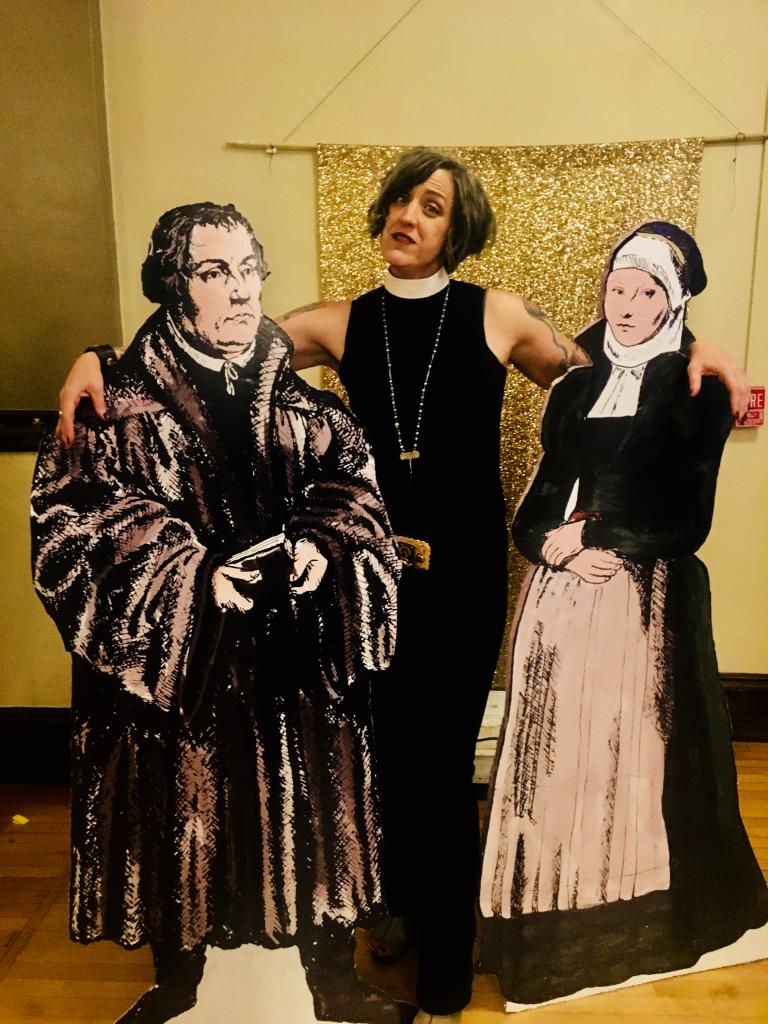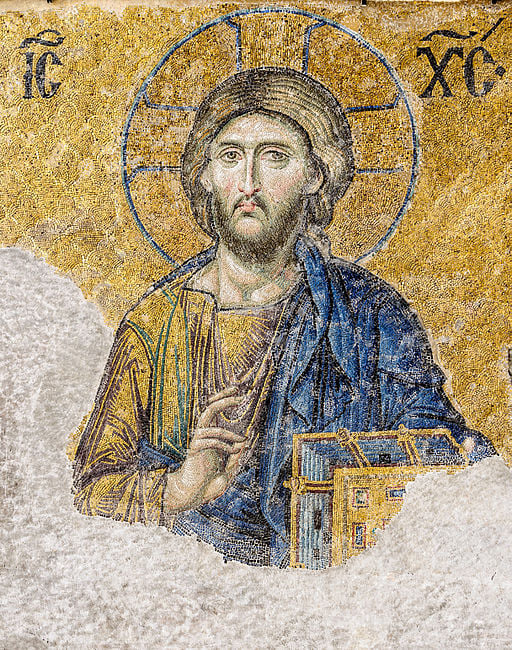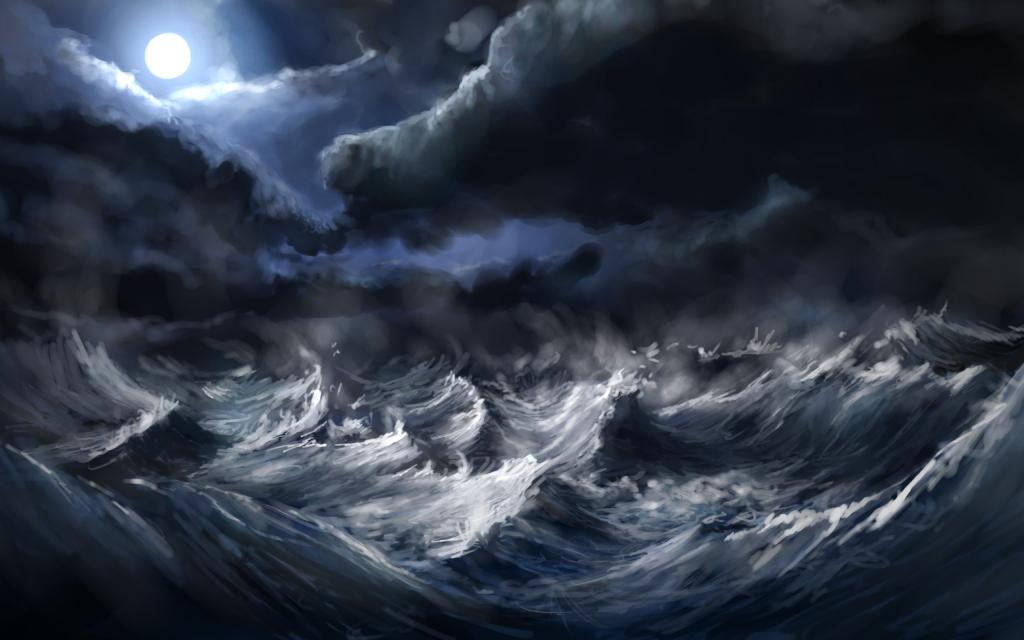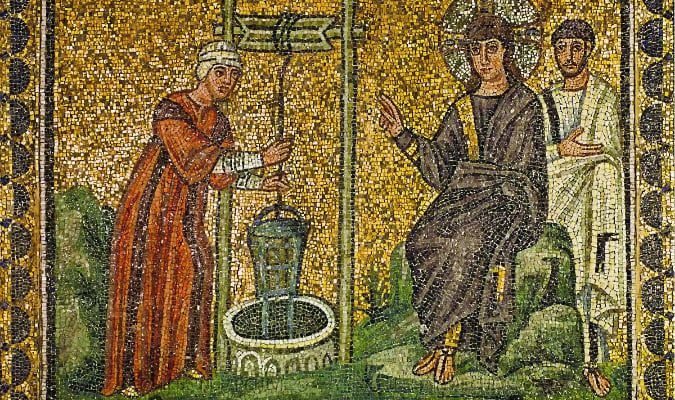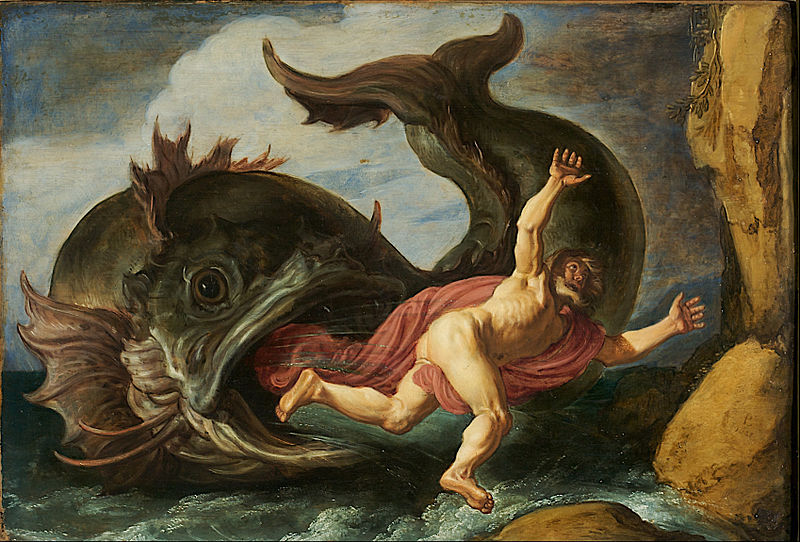
(Sermons, so much better when heard that read. click above to listen along!)
Once in the middle of the night, I was watching bad Christian television on cable and when I was well past the point of delirium there was Bible trivia game show on. I was feeling pretty proud about getting so many answers right when up came a question that totally stumped me. The young handsome host read the following question from a blue index card: “In what book of the Bible does the story of Jonah appear” and for the life of me I couldn’t remember.
For those of you playing along at home – the answer is Jonah. The story of Jonah appears in the book of Jonah. Who knew.
Anyhow, today we heard the middle part of Jonah, But I absolutely have to tell you the whole story because, for my money, it’s one of the best in the Bible. The first thing you need to know is that Jonah’s people were part of ancient Israel…and Israel had this enemy called Assyria the imperial force of the day, whose capital was Nineveh. They had ravaged and pillaged so much of Israel taking their wealth, occupying their land, and demanded that the people of Israel pay them tribute – think District 12 and the Capital.
The Assyrians were horrible. And the destruction of Assyria could only mean good news for Israel.
Ok, so the word of the Lord comes to Jonah and God says “Go to that wicked city Nineveh – because those guys suck so much that their wickedness is like, totally stinking up heaven”
It’s like if the word of the Lord coming to me and saying “Hey Nadia, you know the people who hurt children and are mean and greedy and violent, you know those movie theater shooters and extremists who attack innocents …Well, you’re right. Those people suck. So I’d like you to do cry out against them for me”
Can you imagine? I don’t know about you but I’d take God up on it in a heartbeat. I’d throw up some tweets and blog about it and even show up in person with a bullhorn to cry out against my enemies, the horrible people.
So it’s kind of weird that Jonah doesn’t take God up on this offer. Instead, Jonah takes off in the other direction. God says for him to go speak against his enemy and Jonah takes off.
Now comes the part of the story that folks are maybe more familiar with. Jonah takes a boat in the exact opposite direction of Nineveh at which point God causes some pretty bad storms. The sailors realize that Jonah is the problem and they throw him overboard. Then just before drowning , Jonah was swallowed by a big fish and for 3 days our little hero is given a gastronomic time-out. Nothing like sitting in the dark slimy belly of an aquatic animal for a few days to make you reflect. So from inside the fish Jonah thanks God for God’s mercy in saving him from the deep. At which point God made the fish spit him up on the shores of…you guessed it, Nineveh qualifying as what must be considered the worst cab ride in history. So this is where our reading for today picks up. The Word of the Lord comes to Jonah a 2nd time and this time Jonah relents and enters Nineveh, the city of his enemies, the people he hated more than anyone else, the people who had caused him and his people great harm and he preached his little 8 word sermon. He stood in the city and said “40 days more and Nineveh will be destroyed”. I imagine him doing this kind of like the way I used to “apologize” to my siblings. You know, quietly, with a clenched jaw and like, Zero sincerity.
And the thing is, it worked. Jonah’s half-assed reluctant prophecy worked. His enemies repented.
And God did not destroy them.
But here’s the rub: if the behavior of the Assyrians was Jonah’s problem and they repented then he should be happy, right? Wrong.
Jonah immediately finds a little hill on which to pout like a big fat baby. From that little pathetic hill outside Nineveh, Jonah finally admits why he was such a reluctant prophet: it wasn’t because of low self-esteem, home sickness or fear of public speaking. No.
When his enemies repent and are spared, Jonah is like, Yeah, that’s why I didn’t want this stupid job in the first place – because I knew, God, that you were gracious and merciful slow to anger and abounding in steadfast love – that’s why I didn’t want to have anything to do with this whole thing.
God was like, wait, you’re angry? And Jonah says heck yeah I’m angry and here’s where he becomes a total drama queen – he says I would rather DIE than for my enemies to be spared.
I would rather die than for my enemies to be shown mercy. Humor aside, that’s what’s hard about reading Jonah – I have to look at how much I too need my enemies to stay my enemies, like it’s hard to know who I am if I don’t know who I’m against. Like last year when a website called The American Conservative wrote a positive review of my book. Total identity crisis.
But maybe our need for enemies is so that we can neatly avoid the ways in which we too are enemies – enemies of grace, enemies of forgiveness, enemies of those we harm. And when God does not as as we think God should…perhaps we are even enemies toward God. Showing up with a bullhorn to cry out against someone else is seriously the best way for me to avoid being the one being cried out against.
Maybe we need our enemies to stay our enemies not just as individuals or as a religion but even as a nation. I mean, not for nothing, but you know where modern day Nineveh is? Mosul in Iraq. And this Summer ISIS destroyed a Mosque that was traditionally understood to be the burial site of Jonah. Our enemy destroyed the burial site of the prophet who resented mercy being shown to his enemy. I mean, how many generations – how many layers of human BS do we need in order to get the message?
In the end, God doesn’t leave Jonah, the very worst prophet. As Jonah sits on his sad little hill and seethes at how his enemy remains un-destroyed, God sends a bush to grow over him and provide him shelter and Jonah was grateful for that, But then God sends a worm the next day to destroy the plant and Jonah is like, What The heck? It’s a weird object lesson, but here’s how the book of Jonah ends – by God saying to Jonah, “Is it right for you to be angry about the bush?” And Jonah said, “Yes, angry enough to die.” Then God said, “Wait. You are concerned about the bush, which you didn’t even grow; it came into being in a night and perished in a night. So why shouldn’t I be concerned about a city in which there are more than a hundred and twenty thousand persons – ok – they don’t know their right hand from their left, but there’s 120,000 of them and also… a lot of animals?”
The book literally ends by God saying “and, a lot of animals”
This week as I was totally relating to Jonah and his terrible attitude toward God – since God has also not seen clear to destroy my enemies either.
I started to wonder about God’s answer to Jonah. I wondered about why God would have the bad taste to have love and concern toward those we would want to destroy. But then I thought of life in Nineveh and life in Mosul. I thought about how likely it was that on any given day, yes the powerful might be taking the land of others and demanding unfair taxes, but that also on any given day in that city there would be children in the streets, and cattle in the fields and women giving birth. Perhaps this is one reason why God didn’t want Nineveh destroyed.
Because there is no act of vengeance or violence that effects only its intended target. Collateral damage (be it emotional of physical) is always concomitant to retribution because there are human beings that love every single person we may wish to destroy. This week as jury selection started here in Denver for the trial of the Aurora Movie theater shooter James Holmes, my mind kept thinking of Nineveh and Jonah and Isis and Mosul and how as much of a mass murderer as James Holmes is, he has a mother who years ago gave birth to a baby boy. And he has a God.
God loves you. God loves your enemies. God loves those who love your enemies. Which means that God is gracious and merciful, slow to anger and abounding in steadfast love towards me even though I am in all likelihood – someone else’s enemy. How many generations, how many layers of divine mercy do we need before we get the message?
I just wonder if maybe good news is only good news if it’s good news for everyone. If not, it’s just our own schemes. Which again, is why sometimes I like to say that the Gospel is like, the worst good news I’ve ever heard. Jonah understood that. Amen.


